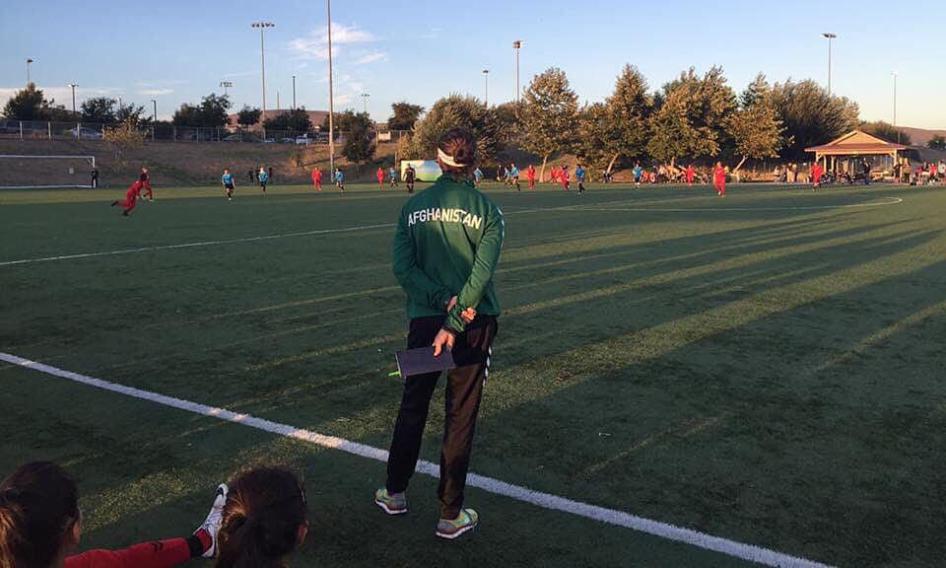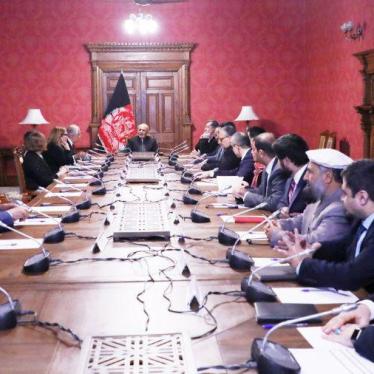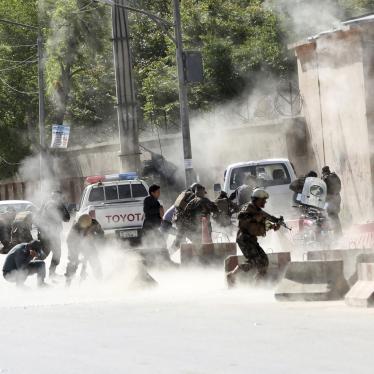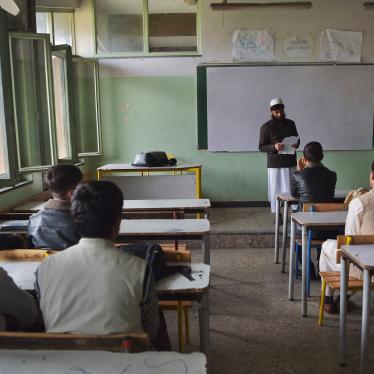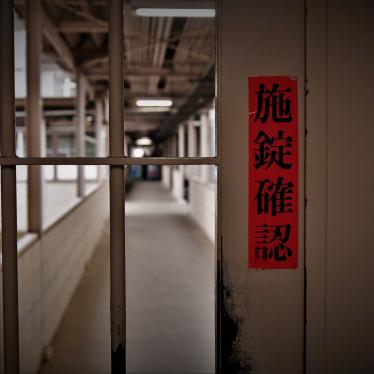(New York) – Afghan authorities should fully investigate and appropriately prosecute the sexual assault claims by 20 members of Afghanistan’s national women’s football team, Human Rights Watch said today. The Fédération Internationale de Football Association (FIFA), football’s world governing body, should assist and monitor Afghan government prosecutions and promote justice for the victims, protection of witnesses, and safety of players on the Afghan women’s team.
Afghan prosecutors are slated to visit Europe and Canada in the coming weeks as part of an investigation that began in December 2018 after The Guardian first reported allegations of sexual assault and harassment of the women’s football team players.
“Afghan authorities, as a critical step in ending violence against women in public life, need to act decisively and fully prosecute all those responsible for crimes against members of the Afghan women’s football team,” said Minky Worden, director of global initiatives. “FIFA, which said it began investigating these allegations last April, should share information with Afghan investigators and maintain a ban on accused officials.”
Members of the Afghan National Women’s Football team have accused the president of the Afghan Football Federation (AFF), Keramuudin Karim, and other AFF officials of sexual assault, harassment, and discrimination. Between February and March 2018, team officials called nine top players lesbians and fired them. Five players have told the Guardian that Karim and other employees of AFF had sexually assaulted them.
The former team captains, Khalida Popal and Shamila Kohestani, both of whom now live outside of Afghanistan, have been advocating justice on behalf of their former team members. Popal has said that sexual abuse of players, both women and men, goes back years and occurred while the team played abroad.
Since the reports that FIFA was investigating allegations of abuse surfaced in November, several members of the women’s national team have fled Afghanistan out of fear for their security.
These cases are a test of the Afghan government’s willingness to root out abusive elements in women’s sport, Human Rights Watch said. Karim, the former governor of Panjshir province and a former defense ministry chief of staff, should not be allowed to use political influence to escape justice while Afghan women are punished for reporting sexual assault.
On December 9, the attorney general’s office suspended and issued a travel ban on Karim; his deputy, Yousuf Kargar; and three other AFF officials. On December 12, FIFA’s Ethics Committee placed Karim on a 90-day provisional ban and on January 15, 2019, rejected Karim’s appeal to remove the ban. Afghan media reported that Kargar’s suspension and travel ban was lifted on January 27.
On January 27, the attorney general’s spokesperson confirmed that the investigations in Afghanistan had been completed and that the next step was for Afghan prosecutors to obtain the testimony of team members who have sought asylum in Europe.
Karim has publicly denied the allegations, calling the complaints “pure defamation, and a group conspiracy against Afghanistan’s football.” The team sponsor, Hummel, a sportswear company based in Denmark, has halted funding. FIFA has provided at least US$1.5 million in assistance to the Afghan federation.
“Our biggest concern is that if FIFA takes more time, this topic will be dropped off the global agenda, which we can’t let happen,” Popal told Human Rights Watch. “The women and girls of Afghanistan deserve and have a right to experience sports free of inequality, harassment, abuse, and sexism.”
Afghanistan’s 2009 Law on the Elimination of Violence Against Women imposed tough penalties for violence against women. However, impunity for such crimes remains widespread.
“With the Women’s World Cup in 2019 on the horizon, FIFA should make use of its evidence and authority to send the message that such abuse will never again be tolerated,” Worden said. “The prosecution of this case is crucial for the ability of Afghan women and girls to play sports at all levels.”
Female athletes in Afghanistan have previously faced abuses of power. Afghanistan’s National Women’s Cycling team ended its operations when their longtime coach and the head of the federation, Haji Abdul Sediq Seddiqi, was implicated in the theft of funds. The Afghanistan National Olympic Committee fired Seddiqi, who had married and divorced three of the girls he was coaching. The women cyclists ended up losing their team and sponsors, but Seddiqi was never prosecuted for corruption or inappropriate conduct with athletes he was coaching.
“Afghanistan has a terrible track record protecting female athletes from abuses by coaches and federation officials,” Worden said. “Now that the prosecutors are wrapping up their investigation, it’s important for them to take the next steps to prosecute the suspects appropriately. Women and girls in Afghanistan have a right to play sports without fearing assault and harassment.”
